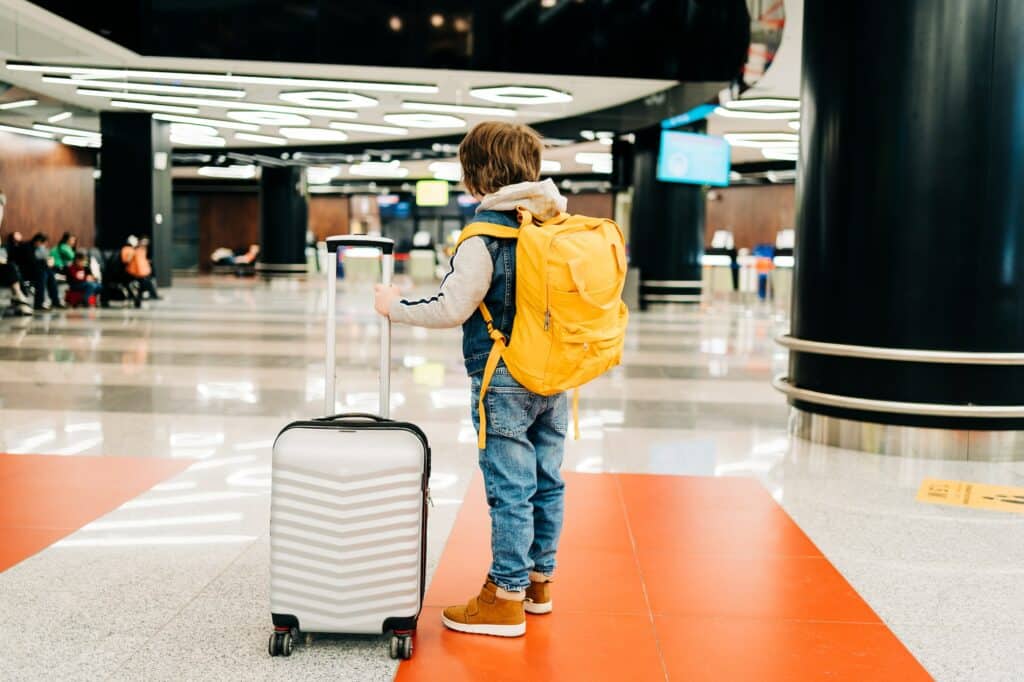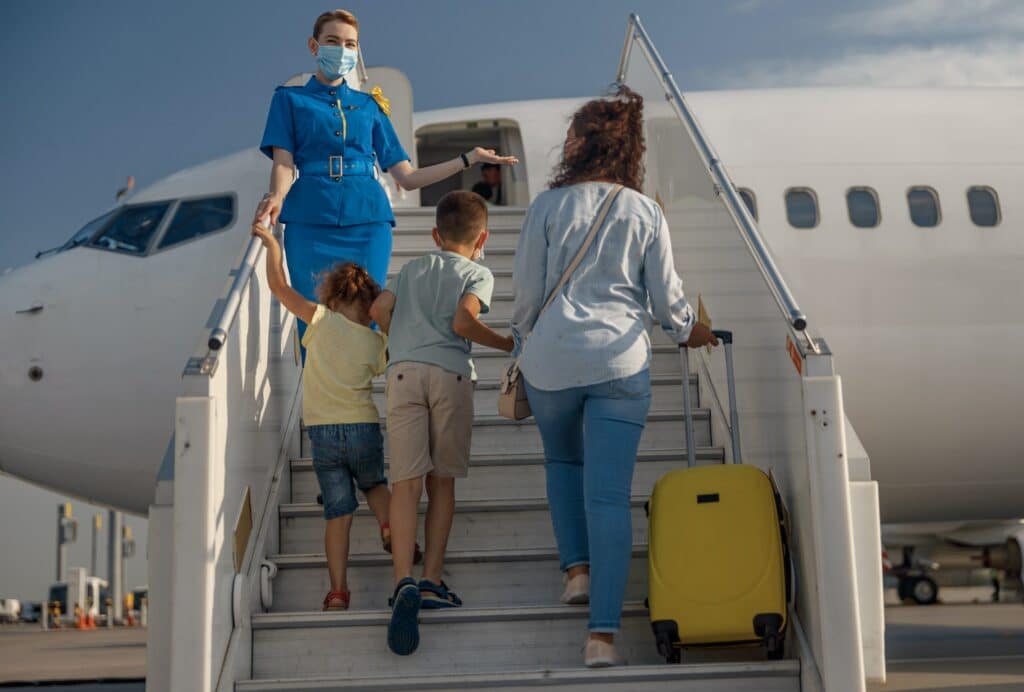In today’s cosmopolitan Australia, it is becoming more and more common for one parent of a child to have been born in a different country, who has since emigrated to live in the land down under.
This often means the person has a much larger support network of family and friends back in their home country than they do in their new life in Australia. As a result, that person will likely travel regularly back to their country, which will raise the conversation of their child or children travelling with them and travelling overseas with children if you have separated.
For many parents there may be a concern about children not being returned to their lives in Australia, or what their options are if this does become a concern.
So, what arrangements can be put in place to give peace of mind to both parents?
Types of Arrangements for Travelling Overseas with Children if You Have Separated
Amicable arrangements — informal agreement or consent orders.
The fastest and most cost-effective way for parents to put arrangements in place for overseas travel of their children is where both parents agree. While this is obviously an ideal world for parents to come to an informal agreement, this would not be binding on its own, and if issues did arise while the children were overseas with one parent, then the other parent would have a lot of difficulty securing the child’s return.
To ensure there are binding arrangements in place, amicable parents should strongly consider obtaining some parenting orders from the Federal Circuit & Family Court of Australia by way of consent. Providing there are no controversial issues in dispute, it is a fairly straightforward and relatively inexpensive process to go through to provide certainty for both parents and the children around multiple concerns.
Parenting orders relating to travel can include orders allowing children to have passports, nominating which parent is to hold the passports, timeframes for setting out travel arrangements and itineraries to the other parent, and the amount of time a parent can spend overseas with the children each year.
Contested / urgent arrangements — application to court / airport watch list.
Unfortunately, not all post-separation parenting arrangements are amicable circumstances. In situations where one parent is threatening to leave Australia with the children and the other parent does not agree to this, or where one parent suspects the other parent is going to take the children outside of Australia with the intention of not returning with them, then an urgent application to the Federal Circuit & Family Court of Australia will likely be necessary to prevent them from leaving the country.

If you’re reading this, you may have concerns for children who are already on an overseas trip with their other parent. Where you have good reason to believe the children will not be returned from that holiday, you can follow the path of an urgent application to have your children returned to Australia. A family lawyer, such as our team at Arbon Legal Group, can help you get this underway.
Another tool for parents to try and prevent the other parent unilaterally taking the children outside of Australia is the Airport Watch List. The Airport Watch List is a database maintained by the Australian Federal Police, which records the names of children who have orders relating to them with relevant overseas travel restrictions included.
As the name implies, the Airport Watch List is cross-referenced with all passengers trying to fly out of Australia. If a parent tries to leave Australia with a child who is named on the Airport Watch List, they will both be prevented from leaving the country.
However, for a child to be placed on the Airport Watch List, there may need to be orders already in place regarding overseas travel for that child, or where an application with the Federal Circuit & Family Court Court of Australia regarding parenting arrangements for that child are currently before the court.
Hague Convention countries.
While it is one thing to have orders in place so children can be returned to Australia, it is another thing to make sure the country they are being returned from comply with a request for those children to be returned.
Parents need to be aware of a list of countries that have signed up to the Hague Convention on the Civil Aspects of International Child Abduction, otherwise known as Hague Convention Countries. These countries all have reciprocal agreements with each other that their authorities will assist each other in returning children to their home, where appropriate, giving parents further peace of mind on top of orders of the court being in place.

However, it is important to bear in mind that if children should be taken to a non-Hague Convention Country, there is no guarantee the country’s authorities will comply with a request to return the children home, even if there are court orders in place.
At the time of this article, there are currently 91 Hague Convention members.
Who can help with matters relating to travelling overseas with children if you are separated?
A family lawyer, such as our team at Arbon Legal Group, can help with complex parenting and property matters. Our team is experienced in a range of these matters, including making urgent applications to recover children (both domestically and internationally). If you or someone you know is in need of our assistance, please contact us on (07) 5562 0444 for an initial consultation.




